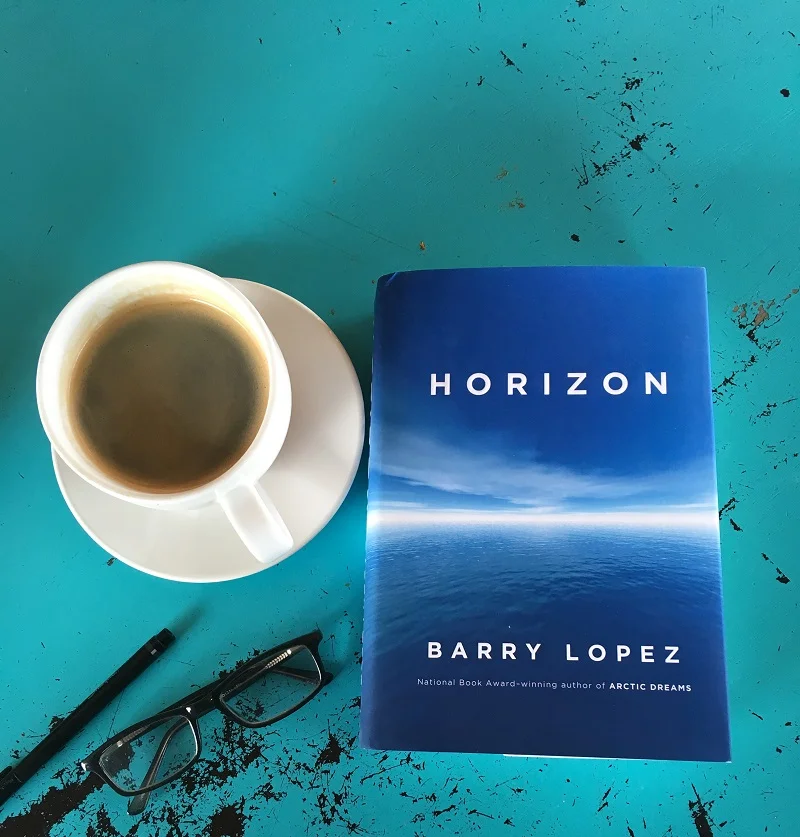My intention in rereading my field notebooks and drafting Horizon was to walk the distance between that moment in 1948, standing in the harbor shallows as a boy amid the sailboats of wealthy residents living at the Orienta, and a winter day in 1994 when I visited, for perhaps the tenth time, Cape Foulweather, a headland on the Pacific coast of Oregon, the locale of Captain James Cook's first landfall in North America.
What does the man who made camp that day on the flank of Cape Foulweather, to wait for a late winter storm, hope to find, recalling some scenes from his boyhood while at the same time trying to imagine Cook's Resolution there in front of him, approaching on a shoreward tack, the ship having emerged first as a pindot on the horizon and then grown in a few hours into a full-blown three-masted square-rigger, half its sails reefed, rust stains bleeding from its scuppers and staining the black sides of its hull?
We, all of us, look back over our lives, trying to make sense of what happened, to see what enduring threads might be there. My further desire in planning this book was to create a narrative that would engage a reader intent on discovering a trajectory in her or his own life, a coherent and meaningful story, at a time in our cultural and biological history when it has become an attractive option to lose faith in the meaning of our lives. At a time when many see little more on the horizon but the suggestion of a dark future.
